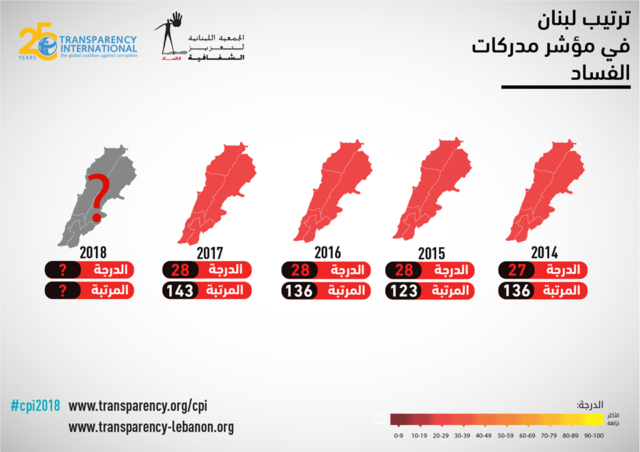The Lebanese Transparency Association (the local chapter of Transparency International) announced Lebanon’s rank in the annual global Corruptions Perceptions Index (CPI) on January 29, 2019.
Lebanon ranked 138/180 with a transparency score of 28/100.
In 2017, Lebanon ranked 143/180 with a transparency score of 28/100.
What do these numbers mean?
Does this mean that the country moved up the ranks?
The simple answer is “No”.
The more detailed answer below.
INFACT, the CPI score aggregates data from several different sources that quantify experts and business peoples’ perceived level of corruption in the public sector for each country. For CPI 2018, 13 data sets from 12 independent sources were used.
The data sources are then standardized on a scale of 0 to 100, with 0 being the highest level of perceived corruption and 100 being the lowest level of perceived corruption. In order for a country to be included in the CPI, it has to be mentioned in at least 3 of the above data sources, and an average value is used.
The 180 countries that participate in the study are then ranked for relative corruption, based on their CPI score.
For Lebanon, the score 28/100 means that perceived corruption in the country is relatively high. INFACT, it has been Lebanon’s score since 2015, reflecting no improvement for the past 3 years.
Its ranking, however, improved from 143 to 136. This means that, relatively, other countries did worse and not that Lebanon did better!
Food for thought: What concrete steps will the Lebanese government take to fight corruption in the public sector? What will decision-makers do to break the curse of “28”, and achieve a better CPI score in 2019?
